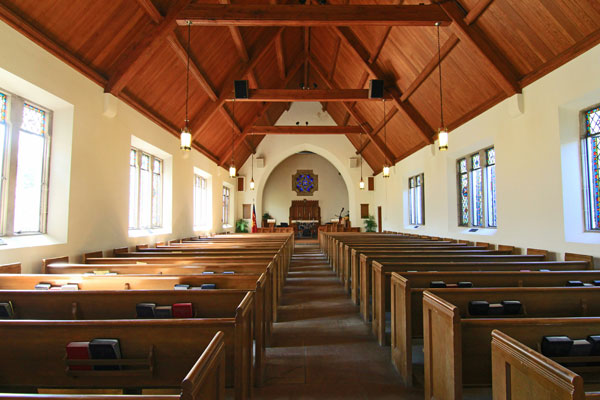The Korean Presbyterian Church disapproved as a caucus of the Presbyterian Church (U.S.A.)

[The inside of a church is depicted. Photo Credit to Unsplash]
On June 26th, 2024, the General Assembly Entity Coordination Committee (GAEC) rejected the National Caucus of Korean Presbyterian Churches’ (NCKPC) bid to be recognized as a caucus of the Presbyterian Church (U.S.A).
The decision followed a robust assembly where numerous testimonies highlighted concerns about the NCKPC’s discriminatory practices against women in leadership roles.
This led the General Assembly to withhold acknowledgement of the NCKPC as an official caucus.
The committee recommended the NCKPC to address the mistreatment of women within its ranks and to report back on the implemented changes at the next General Assembly.
The NCKPC, citing its substantial membership of 330 churches and 40,000 members, argued for recognition as a caucus.
They asserted their significance by stating they were the second-largest group within the Presbyterian Church (U.S.A.).
While acknowledging past issues with gender inequality, the NCKPC representatives argued that they had made several changes and improvements to the churches, expanding upon the Presbyterian Church (U.S.A.)’s goal of diversity in ethnicity, race, and culture.
Daniel Changhyun Ko, an advocate for the NCKPC, exemplifies the NCKPC’s shift towards gender diversity through the acknowledgment of female clergy and communion led by them.
However, Ko also recognized the persistent challenges within the NCKPC regarding the inclusion of women in leadership.
He noted that there is no issue for pastors like him, who received education in the U.S. and experienced more cultural diversity of women in authority when ordaining female elders.
Yet, for first-generation pastors, who maintain their mindset from the 1970s and 1980s, it is difficult to integrate women into a system that was created in the past.
This resistance has led some women to leave the church in search of more inclusive environments.
The committee discussed potential discord if the NCKPC was not recognized, pointing out that this might undermine the Presbyterian Church (U.S.A.)’s commitment to diversity.
The term “caucus,” stems from a verb in the Algonquin nations, which means “to gather.”
Recognition of the NCKPC as a caucus would symbolize a mutual commitment to overcoming inequalities and injustices.
Despite the shared roots and commitment to the Reformed tradition, the GAEC’s decision emphasizes the need for continued reform and monitoring within the NCKPC.
By working closely with congregations and advocating for program developments, the NCKPC could align more closely with the Presbyterian Church (U.S.A.)’s values and eventually achieve caucus status.

- Catherine Kang / Grade 11
- Yongsan International School of Seoul

![THE HERALD STUDENT REPORTERS [US]](/assets/images/logo_student_us.png)
![THE HERALD STUDENT REPORTERS [Canada]](/assets/images/logo_student_ca.png)
